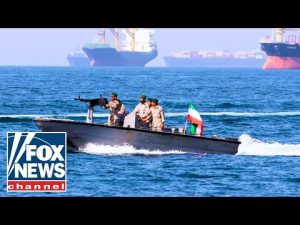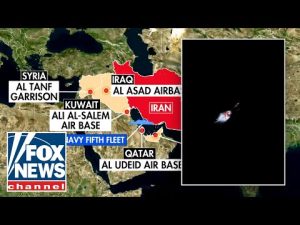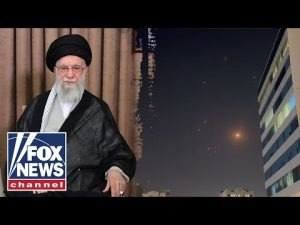In the ever-evolving landscape of international politics, recent developments regarding Iran’s nuclear capabilities have many scratching their heads. Reports indicate that a significant strike took place at the Fordo Nuclear Facility, nestled deep underground in Iran. While it is clear that something hit the facility, the extent of the damage remains a mystery. Did the strike take out essential equipment, or did it simply rattle the cages, leaving Iran’s nuclear ambitions unharmed? It seems only time will tell.
The Fordo site is a crucial part of Iran’s nuclear program, surrounded by mountains and fortified to withstand attacks. It’s like the nuclear version of a gopher hole—hidden and fortified, but you can’t help but wonder if the gopher has managed to stockpile enough food to keep its operation running smoothly. The key question looming in the air is whether this strike has disrupted Iran’s ability to gather the necessary materials to create a nuclear bomb. After all, if there’s no enriched uranium, there’s no bomb.
But let’s break that down. For Iran to make a bomb, they need to obtain fissile materials, which are the building blocks of nuclear weapons. Without these materials, they can’t turn enriched uranium into something explosive. It’s almost like trying to bake a cake without flour. Sure, you can mix eggs and sugar all day, but without flour, you’re left with a messy situation that won’t rise to the occasion.
One can’t overlook the geopolitical ramifications of this strike. Iran’s actions often resemble that of a schoolyard bully who finds great joy in pushing their neighbors around, but this time they may have met their match. With this latest setback at Fordo, the Middle East might experience a temporary peace, like a calm after a thunderstorm. The hope is that this disruption will not only hinder Iran’s push for nuclear weapons but also send a clear message that their behavior will not go unchallenged.
Still, the uncertainty prevails. Will Iran regroup and find new ways to advance their nuclear ambitions? Or will they think twice about their aggressive stance? The world watches as these questions hang in the balance, ready to see how this critical moment will shape the future of the region. Whether it’s the calm before the storm or the first breath of fresh air for stability, one thing is clear: the situation remains a complex puzzle that every nation will continue to scrutinize.







